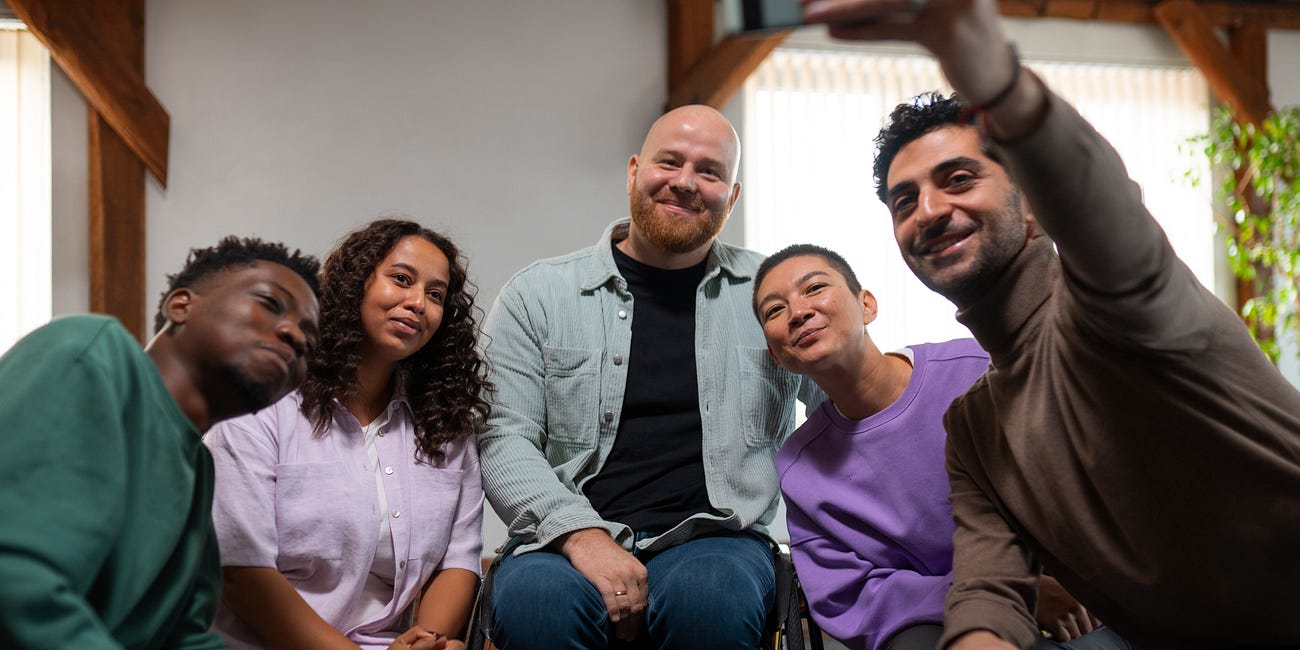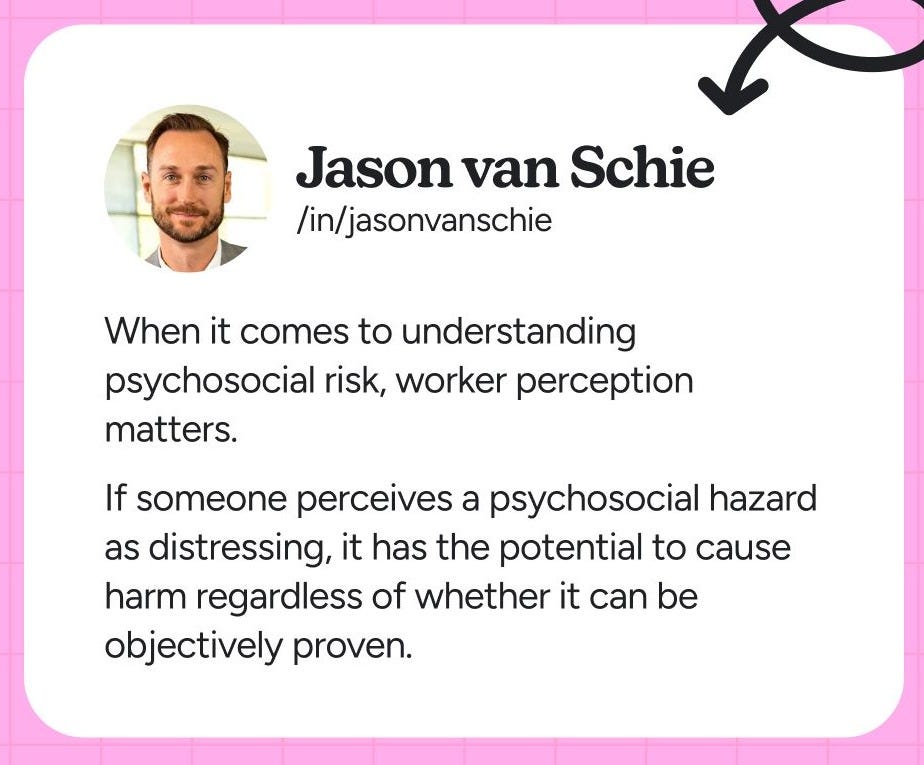Haere mai/welcome to March! 2025 continues to barrel on, with lots of events and happenings in Aotearoa with the potential to have a significant effect on workers’ health, safety, and well-being.
Hopefully, you and your colleagues are keeping safe and well during these trying times; whether or not you are doing so, I hope the information below can be of some help for you.
As ever, a quick plug before the newsletter proper begins. I undertake this mahi on top of my paid work (and unpaid work as a dad of 4!) and my goal is to keep it free and open access for as long as possible. I would greatly appreciate it if you can share this resource among your professional networks, encourage those you know to subscribe, and - of course - like and comment on posts.
News
March is a month of celebrating diversity, including International Women’s Day (8 March) and Neurodiversity Celebration Week (17-23 March).
On the latter, look out for a post on neurodiversity later this week. In the meantime, several organisations have put together resources to help workplaces recognise this important event:
Twinkl [a resource for educators]
If you haven’t already, now’s the time to work with your employer and colleagues to organise events to recognise this important event.
For many of us, change is a key feature of our mahi. This can range from changing how we approach our tasks, to introducing new systems or tools, to restructures, and - God help us - change for change’s sake.
Right now, across Aotearoa, many sectors are facing change, primarily due to tough economic times (that seem to never end) and/or decisions made by our government. Public servants (such a horrible term) have been struggling with this for some time - Te Whatu Ora/Health NZ and Kāinga Ora are two examples recently featured in the media.
Somewhat obviously, change can be handled well or poorly, with the latter approach often causing irreparable harm to workers directly and indirectly affected by the change(s). Last year, I published a piece with some advice for how you can keep safe and well during periods of change.
Keeping Well During Change
Like the proverbial death and taxes, change is an inevitable part of everyone’s work. Recent years have seen the introduction of many changes to our work, occurring at an almost exponential rate. These changes have the potential to have a significant effect on our health, safety, and well-being. But, there are several steps workplaces can take to keep w…
Diversity, equity, and inclusion continues to be a ‘hot topic’ around the world, with the US continuing its attack on interventions designed to support equal rights for all workers and leverage the benefits of a diverse, inclusive workforce.
Closer to home, one of the governing parties in Aotearoa has submitted a bill to parliament seeking to end DEI in the public service. New Zealand First wants to "remove woke 'DEI' regulations" from legislation, ironically a 180 from its position of five years ago, when it supported the law it now seeks to change.
Such posturing poses a real threat for all workers, and, in my view, represents an attack on the health, safety, and well-being of workers. It’s also (again, in my opinion) a short-sighted, uninformed perspective that ignores decades of research highlighting the benefits for workers and organisations DEI strategies and policies bring.
The Case for Diversity, Equity, and Inclusion
This year, the US has moved against diversity, equity, and inclusion (DEI) efforts, with social media giant Meta ending DEI programmes and returned President Donald Trump removing the same in the military and suggesting diversity is to blame in a recent air tragedy
After multiple teases, the full trilogy of articles looking at designing the workplace to protect and promote workers’ health, safety, and well-being is now available. In case you missed them, these pieces looked at:
Environmental factors, such as acoustics, lighting, and ventilation.
Interventions and strategies to support healthy workplace design.
If you want to cut to the chase and skip all those annoying underpinning theories, you can access a summary of recommended approaches.
Related:
Diversity Works is hosting an online webinar on Designing Accessible Workplaces and Spaces (March 26, 2-3pm).
Late last year, WorkSafe released findings from research into psychosocial harm in the retail sector. The survey-based research involved over a thousand workers across retail and examined multiple aspects of the psychosocial working environment, as well as the psychosocial safety climate. Key findings from this mahi include:
Nearly 40% of workers reported being exposed to at least one offensive behaviour in the last 12 months.
Almost a quarter (23.4%) of workers “report experiencing at least one form of burnout…stress and cognitive stress all the time [sic]”.
Workers’ roles and sub-sector (e.g., supermarkets vs. liquor retail) are significant factors in the type of psychosocial risks retail workers experience.
There are higher risks in the sector for “higher emotional demands and role conflicts… [and] significantly lower levels of meaning of work, support from supervisors and role clarity [sic]”.
WorkSafe has released an overview of results and a summary of survey results.
In other news…
Safeguard’s Heather Wright presented a piece exploring organisational support for mental health via the lens of a senior firefighter.
Earlier this year, the Mental Health Foundation publicly called for greater investment in mental health in Budget 2025.
Writing for Newsroom, Sam Sachdeva presented concerns around the changes to legislation relating to personal grievances the government is progressing.
Diversity Works spoke with Tuihana Ohia - founder of T Kaupapa - about organisations that embed te ao Māori well-being practices into their daily culture.
Resources and Tips
WorkSafe has released psychosocial risk infographics for high-risk sectors. While these focus on agriculture, construction, forestry, and manufacturing, they highlight “psychosocial risks that affect all New Zealand workers”.
Recognising the tumultuous nature of global events in the last enter-your-number-here years, the Mental Health Foundation has made some suggestions for managing these difficult times. These key steps include:
Practice radical acceptance
Create digital boundaries
Connect with your community
Take positive action; and
Continue looking after your well-being.
Australia’s Inventium has developed a self-directed online new course aimed at helping workers leverage the power of AI in their mahi: Gen AI.
If you’ve been curious about AI but don’t know where to start, or you’ve played around with it but feel like you’re not using it to its full potential, this course was made for you. - Inventium
Diversity Works has developed a new e-learning course aimed at supporting DEI by helping organisations understand Pacific cultures. Vaka Folau - Exploring Pacific Cultures in Aotearoa New Zealand is a 30-minute module available to anyone (at a cost of $35) in Aotearoa.
Business WorkingWise published a blog examining ways to reduce your risk of cardiovascular disease, a serious health condition that accounts “for around 30% of all deaths” in Aotearoa New Zealand.
In a post on LinkedIn, psychologist Jason Van Schie (FlourishDx) highlights the importance of involving workers in psychosocial assessments at work, rather than relying on a top-down approach alongside the consideration of workers’ perception of hazards.
ACC has released resources to help support recovery at work. These two resources have been developed as part of recovery at work trials that, among other findings, noted a gap in suitable resources. These resources are available for all workers.
In Australia, SafeWork NSW has released a series of resources on working safely in construction. Given the construction sector is one that experiences a high number of deaths and serious injuries in Aotearoa New Zealand, those working in that space should leverage any resources they can get their hands on.
New Zealand’s Government Health and Safety Lead has made its Mentally Healthy Work Development Modules freely available. These have been “developed within the public service and intended to prime Executive and Functional Leaders with information necessary to drive conversations on psychological health and safety, organisational maturity and identify the desired next steps.”
Research
Because of life reasons (!), I’ve not had time to look at any research in the last few weeks; this segment will be back in the April update.
If you’ve encountered research you’d like to share with other readers, please add details in the comments!
Events
If you’re looking for professional development opportunities here are some upcoming events.
March
12 - Managing Psychosocial Safety at the Me, We, and Us Level. Online workshop, 2-3pm (Flourish Dx).
12 - Introduction to Diversity, Equity, and Inclusion. Online, 10-11am (Diversity Works).
13 - Te Whare Tapa Mahi (Workplace Discovery). Online, 1-3pm (Diversity Works).
17-23 - Neurodiversity Celebration Week.
17 - Introduction to Neurodiversity Awareness. Online, 12-1pm (DivergenThinking).
18 - Maximising the Power of Anxiety. Online, 12-1pm (DivergenThinking).
18 - Submissions close for exploring a range of options to control risks from engineered stone (MBIE).
19 - Creating Workplace Policies. Online, 2-2.45pm (Diversity Works).
19 - Introduction to Neurodiversity Awareness. Online, 9-10am (DivergenThinking).
20 - Managing Challenging Conversations. Online, 12-1pm (DivergenThinking).
21 - Introduction to Late Diagnosis ADHD and Hormones. Online, 12-1pm (DivergenThinking).
26 - Designing Accessible Workplaces and Spaces. Online session, 2-3pm (Diversity Works).
27 - Safety Summit 2025. Christchurch (NZ Health and Safety Professionals).
April
1-3 - Whiria Ngā Kaha Workplace Inclusion Aotearoa. Conference, Auckland.
2 - Hoods Up, Volume Down (National Quiet Hour), 10-11am. (Autism NZ).
4 - Nominations close for entries to the New Zealand Workplace Health and Safety Awards (Safeguard).
May
8 - Women in Safety Conference, Eden Park, Auckland (Safeguard).
26-28 - NZOHS Work Related Health Conference, Auckland.
June
5 - Government Health and Safety Lead’s H&S Rep Conference, 9.45am-4.30pm, Wellington.
17 - NZ Workplace Health and Safety Awards Gala dinner, Viaduct Events Centre, Auckland.
Thanks very much for checking out this month’s newsletter; if you have suggestions for more content or you’d like to reach out, please get in touch or engage in the discussion online.
Until next month, be well, be safe, and take care; noho ora mai.
Matt






